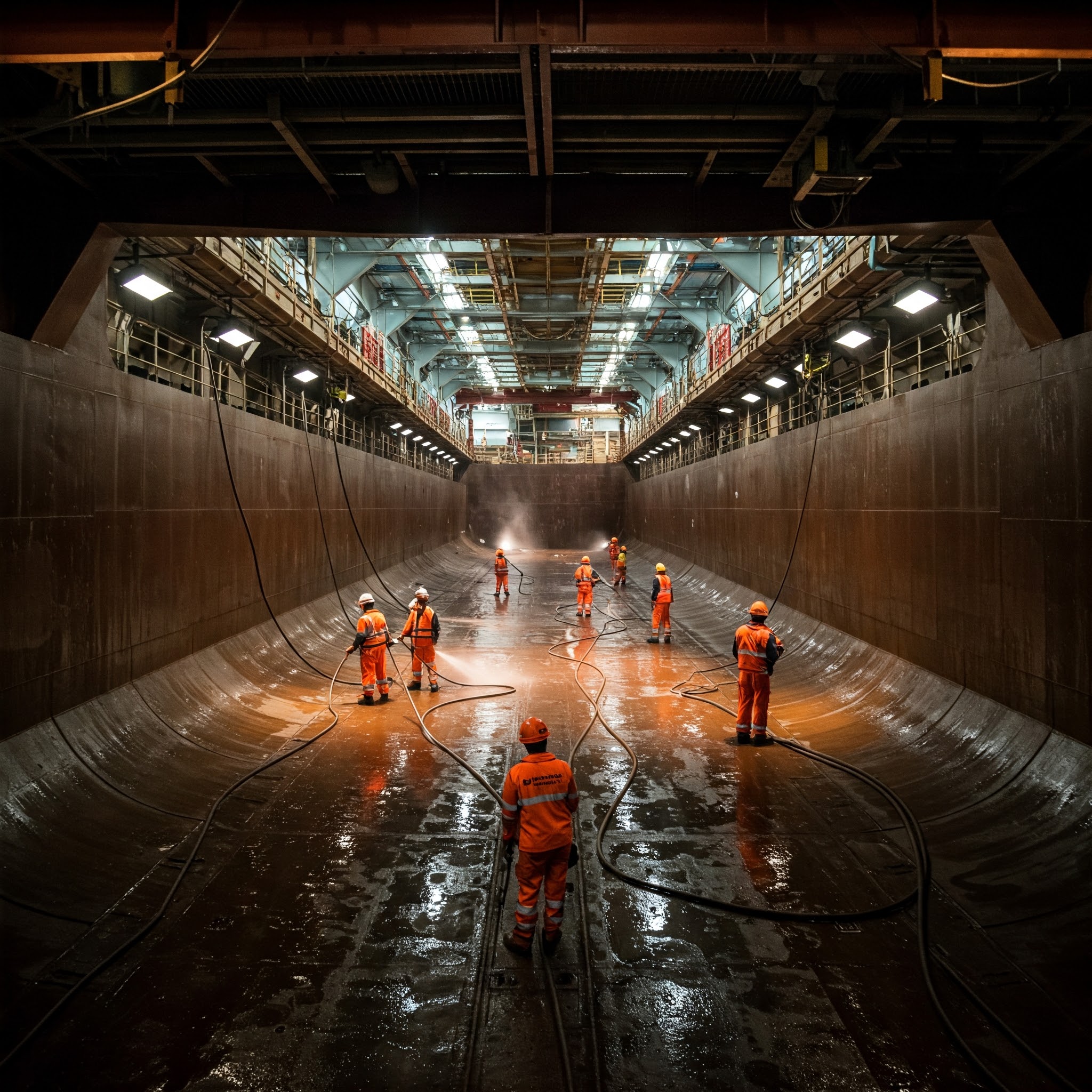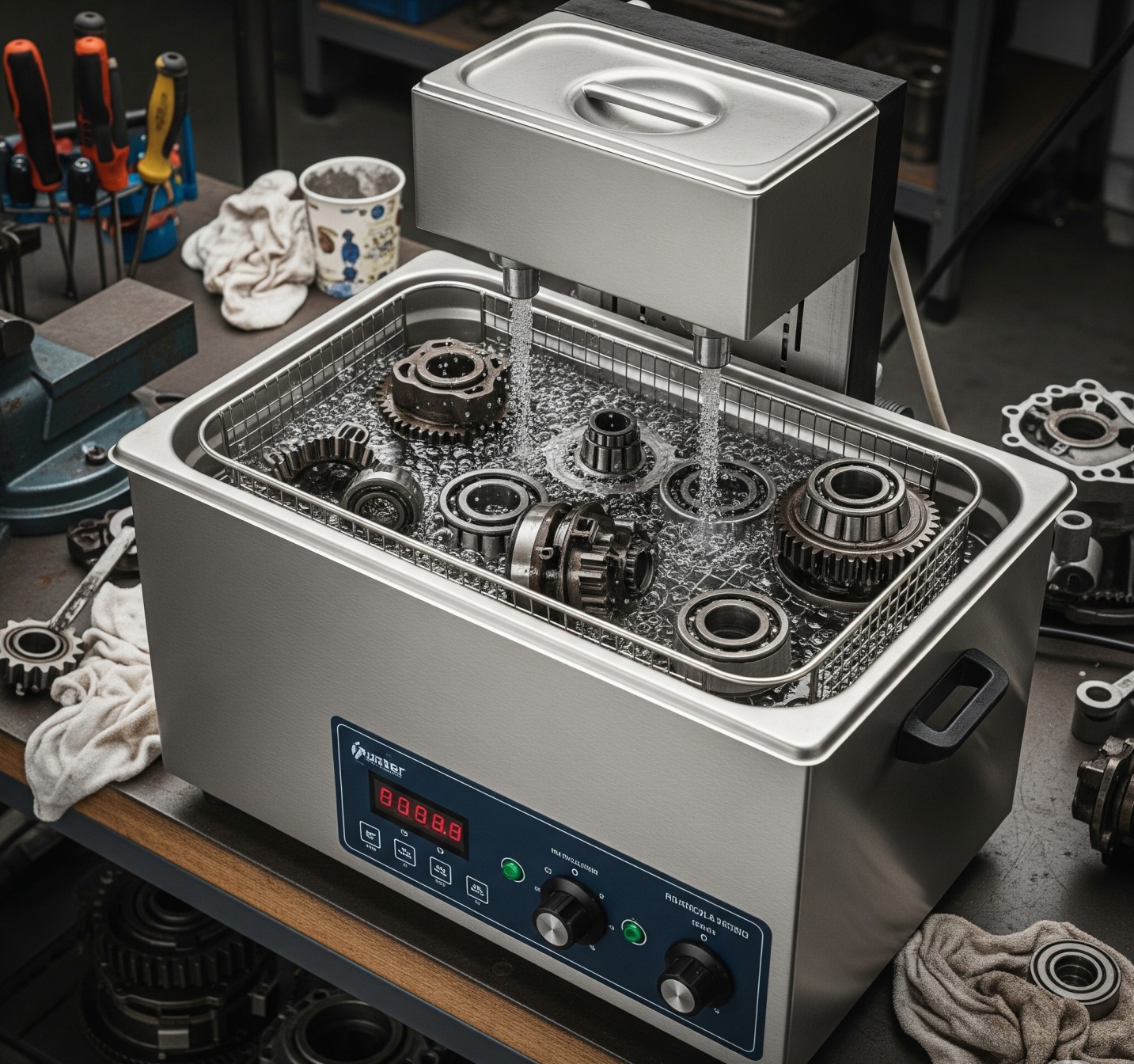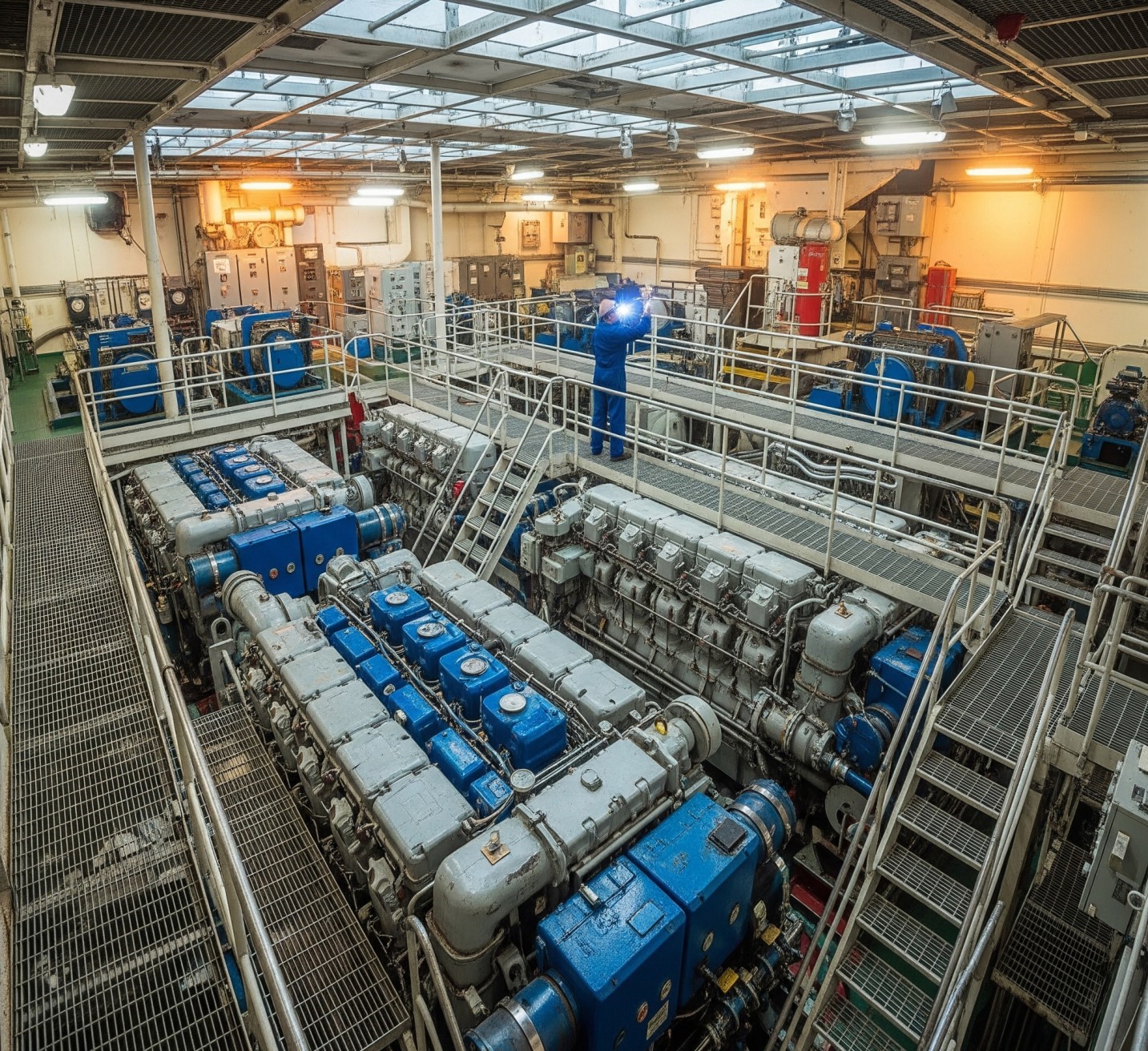Extra pure NITRIC , removes iron residue & forms an oxide layer that boosts the corrosion resistance of the stainless steel intended to improve the corrosion resistance of parts made from austenitic, ferritic and martensitic corrosion-resistant steels of the 200, 300 and 400 series and precipitation hardened corrosion-resistant steels.
High carbon, high chromium martensitic 440C grades which are selected for high hardness and resistance may be exempt from passivation treatments at the discretion of the procuring activity.
PRECAUTION :
1> Loose iron particles or other foreign particles must be removed or they will appear as rust or stain spots. may become smeared over or imbedded into the surface of corrosion-resistant steel parts.
2> DO avoid chlorides that, in excess, can cause a harmful flash attack. When possible, use only a good grade of water containing less than about 50 parts per million (ppm) of chlorides. Tap water is usually adequate, and in some cases up In several hundred ppm chlorides can be tolerated.
Chlorides: are present in many cleaning agents. This entails risk of pitting corrosion of stainless steel. If a cleaner containing chlorine, chlorides, bleaches orhypochlorites is used it must be afterwards promptly and thoroughly cleaned off.
Nitric Acid (68%) Safety Data Sheet
Chemical Identity
Chemical Name
Nitric Acid
Chemical Classification
Inorganic Acid
Formula
HNO3
CAS Number
7697-37-2
UN Number
2031
Shipping Name
Nitric Acid
Codes / Label
Corrosive, Oxidiser, Class 8
Hazardous waste ID No.
16
Hazchem Code
2 PE
Physical / Chemical Data
Boiling Point / Range
120 Deg. C
Melting / freezing Point
- 40 Deg. C
PhysicalState
Watery Liquid
Specific Gravity
1.40
Solubility in water
Soluble
PH
Acidic
Appearance
Colourless to Brown
Odour
Choking Odour
Fire / Explosion Hazard Data
Flammability
No
LEL / UEL
Not Pertinent
Flash Point
Not Pertinent
Autoignition Temperature
Not Pertinent
Explosion Sensitivity to Impact
Stable
Explosion Sensitivity to Static Electricity
Stable
Hazardous Combustion Products
May emit poisonous oxides of
Nitrogen and Acid fumes
Oxidiser
Yes
Corrosive Material
Yes
Combustible / Flammable / Explosive Material
No
Health Hazards / First Aid Measures
Seek Medical help immediately in case of ingestion / inhalation / contact with skin. In the meanwhile following actions are recommended.
Inhalation
Remove the victim to fresh air area. Provide artificial respiration if required.
Ingestion
Give large quantities of water. Do not induce vomiting.
Contact with skin
Flush the affected area with plenty of water for long time.
Preventive Measures
Avoid contact with liquid or vapours. Provide air mask, rubber acid suit, hood, boots, gloves, safety goggles, face shield to the workmen. Water shower and eye wash basin should be provided near the workplace.
Spills
Dilute with water and neutralise with alkali.
During processing operations such as forming, machining, tumbling and lapping, iron particles or other foreign particles may become smeared over or imbedded into the surface of corrosion-resistant steel parts. These particles must be removed or they will appear as rust or stain spots.
High carbon, high chromium martensitic 440C grades which are selected for high hardness and resistance may be exempt from passivation treatments at the discretion of the procuring activity.
CAS NUMBER 7697-37-2
ITEM
:
NITRIC ACID ( HNO3 )
Molecular Weight
:
63.01
Composition
:
H 1.60 % NO398.40%
SPECIFICATION OF PRODUCT
HNO3CONTENT, WT.% MIN
:
62 - 68 %
MINIMUM FREEZING POINT
:
5.3OC
IDENTITY
:
BY IR Spectrum
APPEARANCE
:
CLEAR WHITE FUMING NITRIC ACID
NOTE : IT IS DECOMPOSED BY LIGHT OR ELEVATED TEMP., BECOMING RED IN COLOUR FROM NITROGEN DIOXIDE.
CARBONISABLE SUBSTANCES
:
PASSES THE TEST
COLOUR, MAX
:
10 HU
NON VOLATILE MATTER
:
0.001%
CHLORIDE CONTENT, PPM, MAX
:
0.1 ppm
ORGANIC IMPURITIES
:
Passes test
SULPHUR TOTAL AS SULPHATES, PPM, MAX
:
0.5 ppm
PHASE
:
LIQUID
NITRIC ACID 60 % 50 LTRS Supplier Oman Muscat Barka Salalah Sohar Ruwi Mutrah Nizwa Al Hamra Manah
Email:- mail@muscatchemical.com




